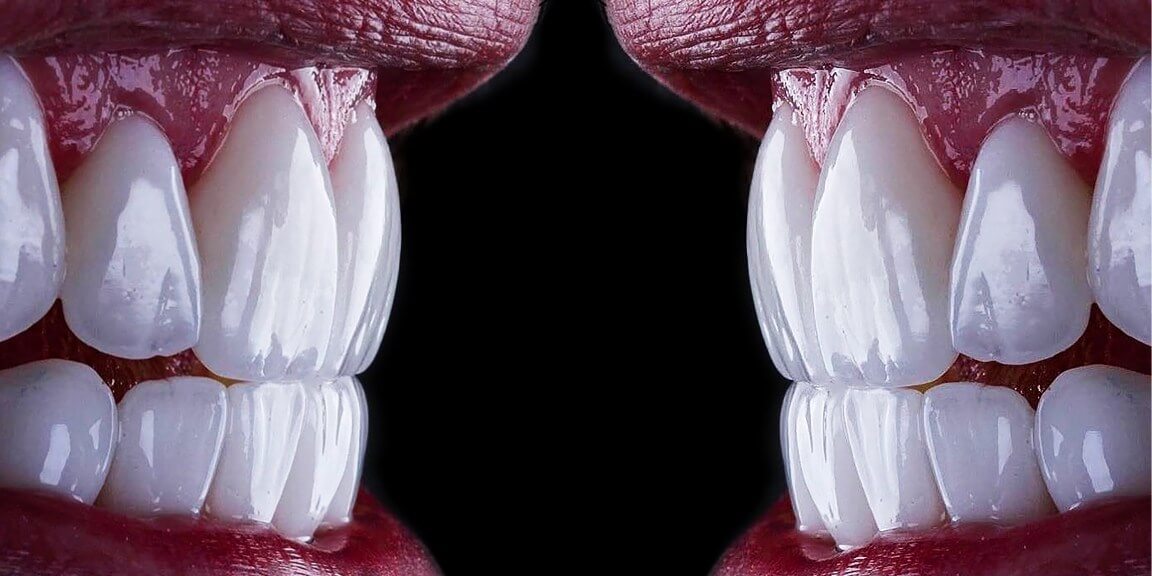Introduction
When it comes to enhancing your smile, veneers are a popular choice. They can transform your teeth, giving you a beautiful and confident smile. However, with different veneer varieties available, it can be challenging to decide which one is right for you. In this article, we will explore the two main types of veneers – composite and porcelain – and help you make an informed decision.
Composite Veneers
Composite veneers are made from a tooth-colored resin material that is directly applied and shaped on your teeth. They are a more affordable option compared to porcelain veneers and can be completed in a single visit to your dentist.
Advantages of Composite Veneers
- Cost-effective: Composite veneers are generally less expensive than porcelain veneers.
- Quick process: Since composite veneers can be done in one visit, you can achieve your desired smile in a shorter time.
- Reversible: Unlike porcelain veneers, composite veneers can be easily removed and replaced if needed.
Disadvantages of Composite Veneers
- Less durable: Composite veneers are not as strong as porcelain veneers and may require more frequent repairs or replacements.
- Prone to staining: Composite veneers are more susceptible to staining from food, drinks, and smoking.
- Less natural appearance: While composite veneers can still provide a significant improvement to your smile, they may not have the same translucency and natural look as porcelain veneers.
Porcelain Veneers
Porcelain veneers are thin shells made from high-quality dental ceramic. They are custom-made to fit your teeth and are bonded to the front surface, providing a natural and long-lasting solution for smile enhancement.
Advantages of Porcelain Veneers
- Natural appearance: Porcelain veneers mimic the light-reflecting properties of natural teeth, giving you a beautiful and realistic smile.
Summary
When it comes to veneers, two popular options are composite and porcelain. Composite veneers are made from a tooth-colored resin material that is directly applied and shaped on your teeth. They are a more affordable option and can be completed in a single visit to the dentist. On the other hand, porcelain veneers are thin shells made from ceramic material that are custom-made to fit your teeth. They are highly durable, stain-resistant, and provide a natural-looking appearance. However, they require multiple visits to the dentist and are more expensive than composite veneers.

Ultimately, the choice between composite and porcelain veneers depends on your specific needs, budget, and desired outcome. Consulting with a qualified cosmetic dentist is crucial to determine which option is best f or you. They will assess your oral health, discuss your goals, and recommend the most suitable veneer variety to achieve the smile of your dreams.
- Q: What are veneers?
- A: Veneers are thin shells made of either composite or porcelain that are bonded to the front surface of teeth to improve their appearance.
- Q: What is the difference between composite and porcelain veneers?
- A: Composite veneers are made of a tooth-colored resin material and can be directly applied to the teeth. Porcelain veneers, on the other hand, are custom-made in a dental laboratory and then bonded to the teeth.
- Q: Which veneer variety is more durable?
- A: Porcelain veneers are generally more durable and resistant to staining compared to composite veneers.
- Q: Are composite veneers more affordable than porcelain veneers?
- A: Yes, composite veneers are usually more affordable than porcelain veneers.
- Q: Can composite veneers be repaired if they get damaged?
- A: Yes, composite veneers can be repaired if they get chipped or cracked. The damaged area can be easily fixed by adding more composite material.
- Q: How long do veneers typically last?
- A: Porcelain veneers can last between 10 to 15 years, while composite veneers have a shorter lifespan of around 5 to 7 years.
- Q: Do veneers require any special care?
- A: Veneers do not require any special care. However, it is important to maintain good oral hygiene practices such as regular brushing, flossing, and dental check-ups.
- Q: Can veneers fix all dental problems?
- A: Veneers are primarily used to improve the appearance of teeth by correcting issues like discoloration, chips, or gaps. They may not be suitable for addressing severe dental problems such as misalignment or significant tooth decay.

Welcome to my website! I’m Hayden Watkins, a dedicated and passionate Dental Surgeon with years of experience in providing exceptional dental care. I am thrilled to have the opportunity to share my knowledge and expertise with you through this platform.

